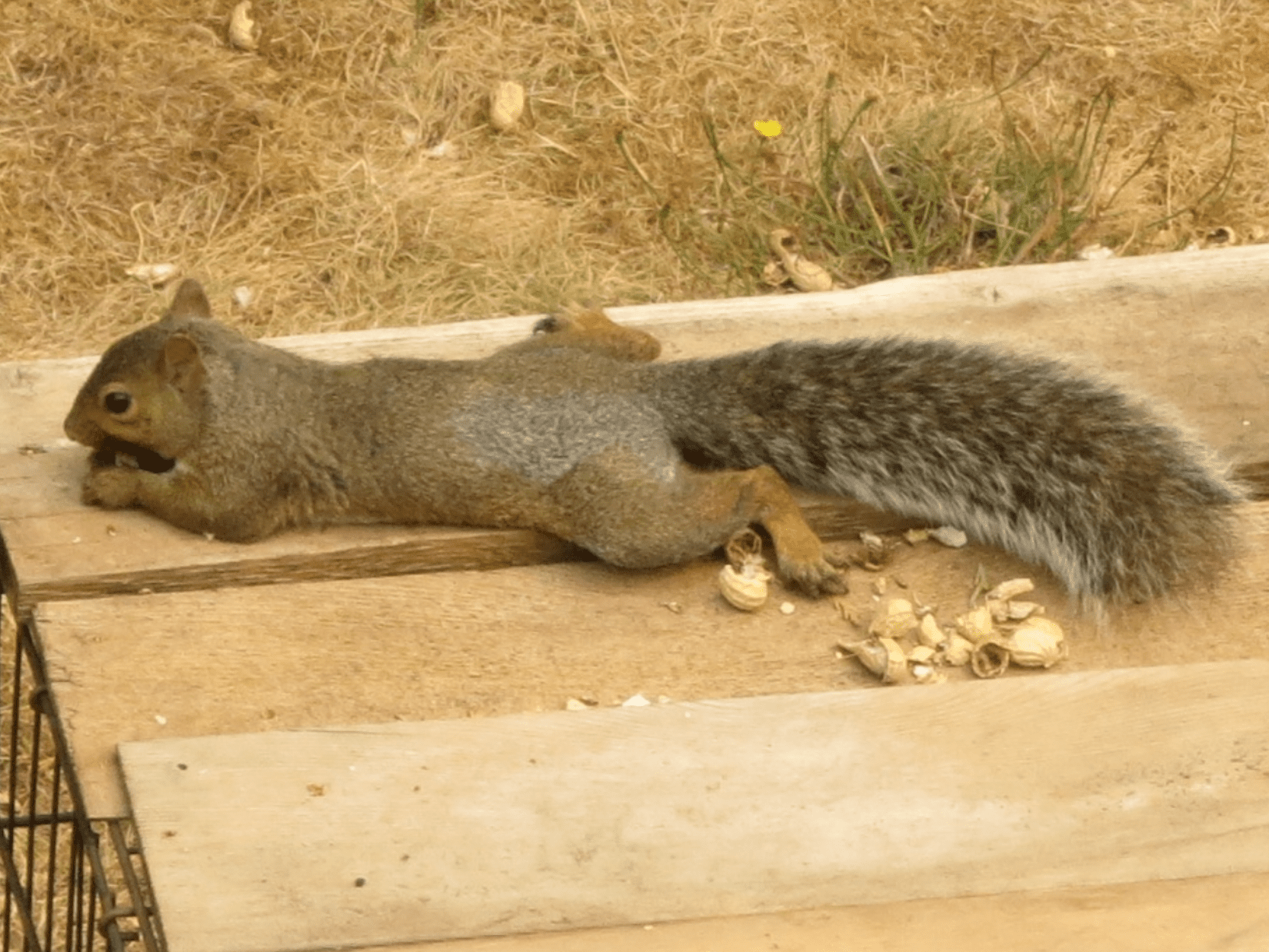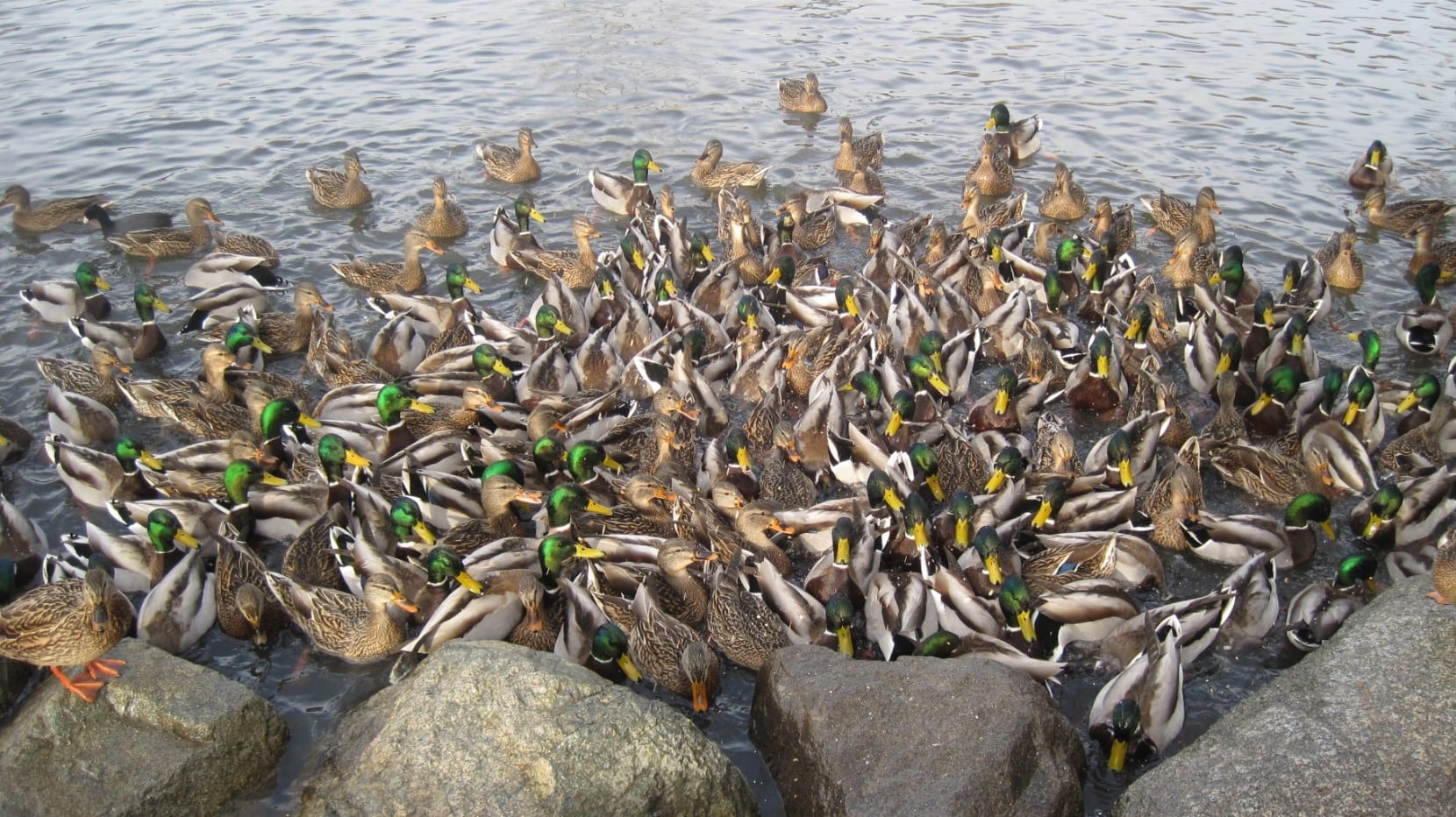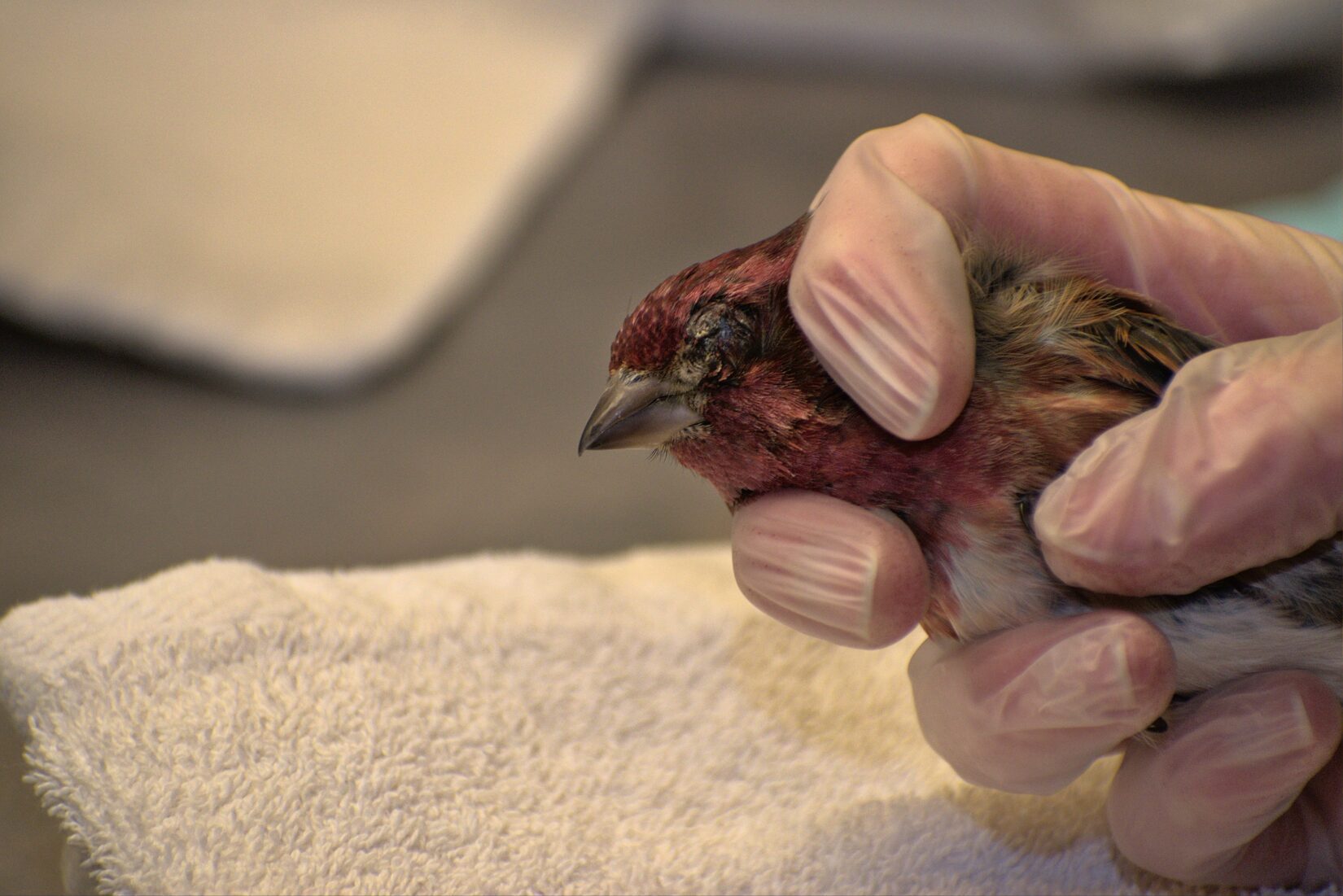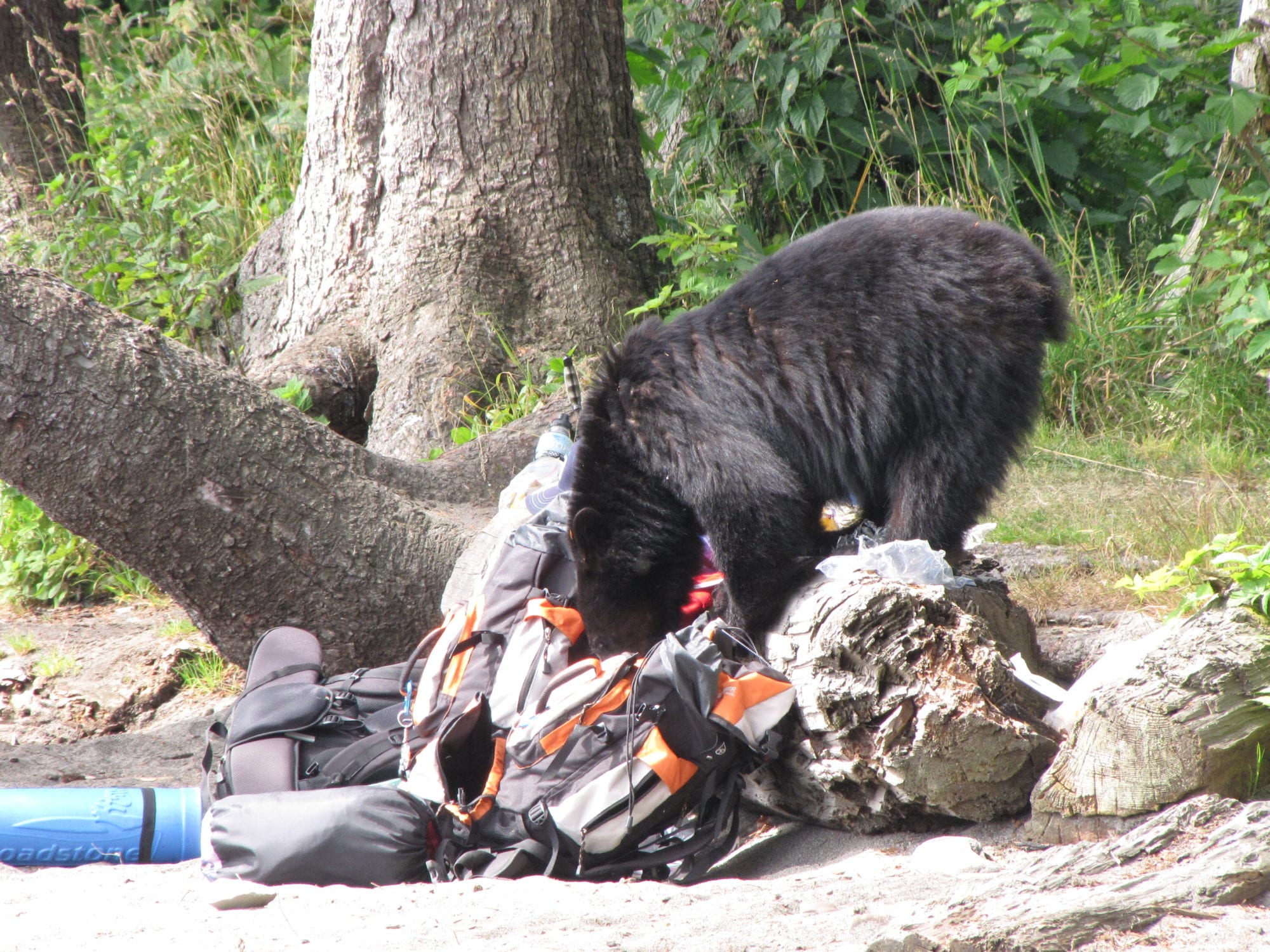Feeding wildlife can seem like an enjoyable way to connect with nature, but it can often lead to serious problems for species like squirrels, raccoons, deer and bears. Wild animals who get used to a hand-out will often take the easy route despite ample natural foods being available – even in urban areas.
You might be surprised to learn the significant harm feeding wildlife can cause. Wildlife feeding is always risky – it can lead to poor welfare and even death and is a significant source of human-wildlife conflict. The BC SPCA opposes feeding wildlife, and you should be too!
What exactly happens when wild animals come to depend on human handouts? There are three major risks of feeding wildlife:
1. It is unhealthy
However tasty, human foods are no substitute for the natural foods that wild animals have evolved to eat. Many animals may seem to enjoy eating sugar, salt and fat, just like we do, but eating human foods does not provide them with the nutrition they need and can negatively impact their physical health.
Because of all the packaging involved, animals who root through garbage risk accidentally ingesting plastic or glass or becoming stuck inside jars or bottles, which can be deadly.
During the holidays, you may come across recipes for ‘reindeer food’ that include coloured sugar, glitter or other non-edible material that can be harmful for wild animals to eat. When participating in this holiday tradition, keep wildlife safe by keeping ‘reindeer food’ inside and out of reach.

Have you ever seen people feeding ducks or other birds at a park? This type of feeding causes birds to suffer from malnutrition, bone deformation and even death. Throwing food into or near water sources also contributes to water pollution and environmental degradation.
Even with “nutritionally appropriate” food, feeding birds by hand causes conflicts with people. Food-conditioned birds may become bolder towards people, become a nuisance or damage property when they gather in large numbers, and stray feed can attract rodents and other wildlife.
2. It spreads disease
Wild animals do not normally gather together in large groups. But when they are all attracted by food to the same spot, they can be found in unnatural numbers. This encourages disease spread not only between animals but also between us and our pets.

The crowding and competition also increase the chances of animal fighting and injury.
In 2021 and 2022, the BC SPCA asked the public to remove their bird feeders to help prevent deadly salmonella and avian influenza outbreaks. Although we all want to help our feathered friends, bird feeders carry risks.
Wild ARC frequently cares for sick songbirds, who likely picked up an infection at a dirty bird feeder. Similarly, liquid hummingbird feeders can cause deadly fungal or bacterial infections if not cleaned thoroughly and regularly or if the nectar is prepared improperly. Get the facts on backyard bird feeding, or learn how to make a naturally bird-friendly backyard.

If you feed birds, do so with care
One area where the experts disagree is on the feeding of migratory birds. Whether you agree or disagree with feeding birds, it is the most widespread and popular form of human-wildlife interaction worldwide. With the exception of liquid hummingbird feeders (due to their specificity and low attraction to other species), the BC SPCA does not support providing bird feeders in months when there are abundant natural food sources available.
Because bird feeders frequently cause diseases like conjunctivitis and salmonella, the BC SPCA encourages attracting birds naturally with native plants, well-managed bird baths and bird houses.
If you are going to feed migratory birds, please:
- Ensure feeders are not accessible to other species, use baffles and “proof” feeders;
- Keep cats indoors and ask your neighbours to do so as well;
- Clean feeders regularly to prevent disease outbreaks;
- Feed only seasonally when natural resources are limited between October and March;
- Consult your local bird feed or nature store to determine the right feed for the season and the species;
- Place feeders in protected areas, out of the rain, snow and wind;
- Place feeders as far away from windows as possible. If it must be near a window, place it less than one metre away and use window decals to prevent collisions;
- Don’t ground feed, and clean spilled seeds frequently to avoid attracting rodents;
- Do not use herbicides, fungicides or pesticides in your yard;
- If maintaining a hummingbird feeder in winter, ensure that it does not freeze, as it is likely the only food source for the birds who are using it; and
- Never feed ducks, geese, swans, gulls, herons or eagles.
Read the BC SPCA’s position on wildlife feeding.
3. It causes habituation
Normally, wild animals have a healthy fear of humans. They like to keep their distance, which is a good thing. This natural wariness keeps wild animals and people safe. But when food is involved, animals are more willing to approach people and, over time, lose their natural wariness.
This can happen when people intentionally feed or leave out food for animals or even unintentionally when people leave out items (like garbage and compost) that attract animals. Feeding animals like bears, coyotes, wolves and cougars is illegal, and our responsibility is to manage our waste to protect them. Learn more about coexisting with bears and other wildlife.
Being unafraid puts wildlife at risk of getting hurt or killed. They’re more susceptible to predators and vehicle collisions as they lose their fear of people and their associated flight response, and also gets them into trouble when people start to see them as a nuisance. “Problem animals” are much more likely to be killed.
When wild animals become habituated to us, people are also at risk. As food-seeking animals that have been fed regularly become bolder, they can begin breaking into vehicles or buildings and encroaching on people and pets with bold behaviour.

Unfortunately, this loss of fear has an impact beyond just the individual animal being fed. Mothers bringing their babies to their favourite feeding spots can teach the young ones that humans are not to be feared. Growing up on human foods, they can also lose the ability to find food in the wild.
What can you do?
You can help with simple actions like putting your garbage out the same morning as pick-up, using wildlife-proof bins, keeping pet food inside, picking up fallen fruit on the ground, and not littering. Unfortunately, not doing these simple things can lead to situations where wild animals – and their offspring – are killed unnecessarily.
The take-home message? More often than not, wild animals end up paying the price for our bad habits. Share this message with friends, family and neighbours and for everyone’s health and safety, don’t feed the wildlife!
For more information and tips on managing food attractants, check out our handy “Don’t feed the animals!” (PDF) brochure.
For an in-depth discussion on wildlife feeding, listen to BC SPCA chief scientific officer, Dr. Sara Dubois, on the unseen impacts of wildlife feeding on an episode of Defender Radio by The Fur-Bearers:
